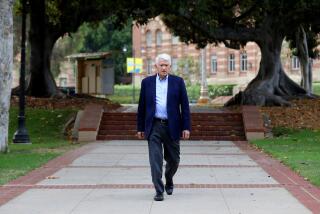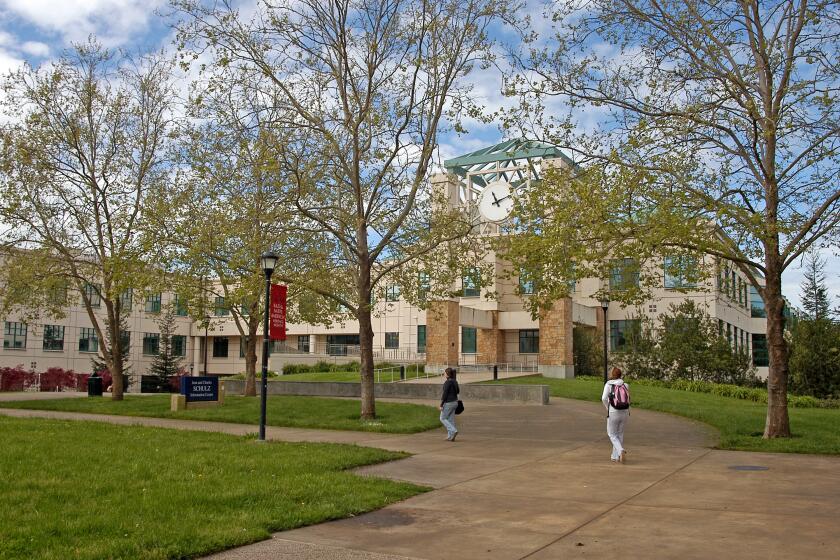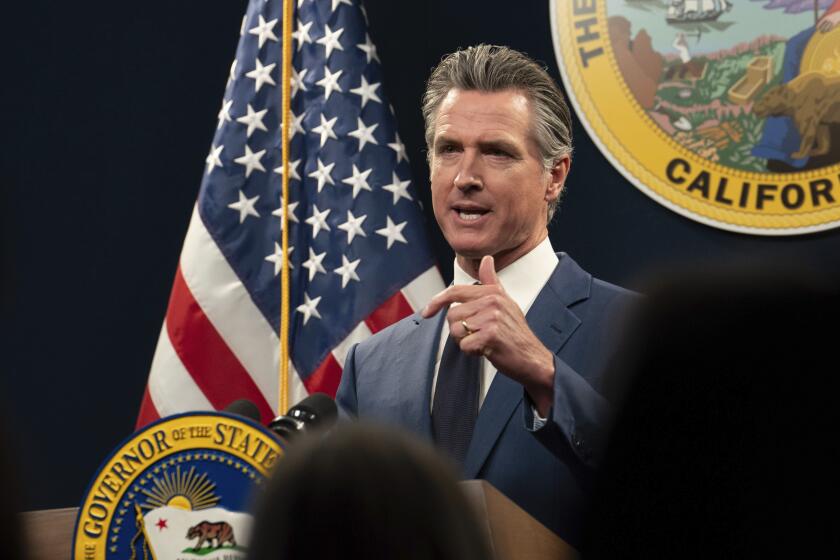LEIMERT PARK : Black Group Offers Input on Economy
Lee Turner heard plenty of rumblings among African Americans about the need to take a role in rebuilding the Central City after the 1992 riots, but he saw little action to back up the words.
So Turner, a Los Angeles real estate developer, helped pull together several black organizations to form the African American Development Consortium. The group aims to represent black interests to politicians and developers who plan construction in central Los Angeles.
Consortium members say they will act as political watchdogs by keeping abreast of government-funded development projects in central Los Angeles--particularly Crenshaw--and making sure black contractors, architects and others are invited to bid for the jobs.
“We (African Americans) need to be more proactive in providing leadership as well as suggesting and supporting legislation,” said Turner, who is chairman of the consortium. “Development won’t get done through government and other traditional outlets. . . . It’s time to take the bull by the horns.”
Formed six months ago, the consortium includes seven local black organizations, most of them construction-related: the Assn. of Black Builders and Contractors, Consolidated Realty Board, Minority Developers Coalition, the National Organization of Minority Architects, the Southern California Black Carpenters Assn., the Black Business Assn. and the Black Foundation.
To inform the public of its goals and query local politicians about the state of black involvement in construction projects, the group held its first town hall forum last week at the Vision Center in Leimert Park. At the meeting, about 100 people listened to updates on development projects from Reps. Maxine Waters (D-Los Angeles) and Julian Dixon (D-Los Angeles), Assembly candidate Kevin Murray, City Councilmen Nate Holden and Mark Ridley-Thomas, and state Sen. Diane Watson (D-Los Angeles).
Waters, detailing the ongoing debate in the Vermont Knolls area over whether to erect public housing or commercial projects, strongly encouraged the audience to stay involved in the decision-making process.
“We (politicians) are in the business of allocating money for projects right in your neighborhoods. You must have a say in what happens,” she said. “Otherwise, more public housing projects will go up in areas already full of them, and ghettos will be perpetuated. You have to stay on top of things.”
For Skip Cooper, president of the Black Business Assn., the consortium is a significant first: a black interorganizational effort whose value goes well beyond simply monitoring construction.
“The intent is multifaceted: influencing public policy, ensuring the participation of blacks in business, creating employment opportunities,” he said. “We felt the need for blacks to come together to make sure all of these aspects are addressed, but also to make sure these different organizations won’t be pitted against each other.”
More to Read
Start your day right
Sign up for Essential California for news, features and recommendations from the L.A. Times and beyond in your inbox six days a week.
You may occasionally receive promotional content from the Los Angeles Times.






